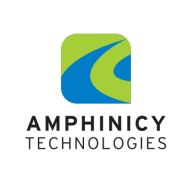

MongoDB Atlas and Blink AMI are competing products in the database and application management category. MongoDB Atlas appears to have the upper hand due to its competitive pricing and strong support structure.
Features: MongoDB Atlas offers strong data governance, seamless cloud integration, and advanced security protocols. Blink AMI provides real-time analytics, easy scalability, and strong application performance management.
Ease of Deployment and Customer Service: MongoDB Atlas has a streamlined deployment model and extensive customer support which simplifies the setup process. Blink AMI focuses on a robust deployment system with comprehensive documentation and self-service options, offering flexible self-management.
Pricing and ROI: MongoDB Atlas has a competitive pricing structure with scalable plans, presenting a cost-effective option for growing businesses. Blink AMI involves higher upfront costs but offers a strong return on investment through its extensive feature set.

Blink is a real-time, high data rate, pure software modem specifically designed to run on commercial off-the-shelf servers, without custom hardware. With Blink, the ground segment becomes more affordable, reusable and flexible.
Blink moves digital signal processing (DSP) from high-maintenance hardware to software and can run on bare-metal or virtual environments (local and cloud).
It can bring previously impossible missions to life and make other missions easier to manage, more productive and significantly more cost-effective to set up and evolve.
MongoDB Atlas stands out with its schemaless architecture, scalability, and user-friendly design. It simplifies data management with automatic scaling and seamless integration, providing dynamic solutions for diverse industries.
MongoDB Atlas offers a cloud-based platform valued for its seamless integration capabilities and high-performance data visualization. It features advanced security options such as encryption and role-based access control alongside flexible data storage and efficient indexing. Users benefit from its robust API support and the ability to manage the platform without an extensive setup process. Feedback suggests improvements are needed in usability, query performance, security options, and third-party tool compatibility. While pricing and support services could be more economical, there is a demand for enhanced real-time monitoring and comprehensive dashboards, as well as advanced containerization and scalability options supporting complex database structures.
What are the key features of MongoDB Atlas?
What benefits should you consider in a solution like MongoDB Atlas?
In healthcare and finance, MongoDB Atlas manages payment transactions and facilitates real-time analytics, powering SaaS solutions and storing large volumes of user data. It enhances scalability, performance, and security for cloud hosting, IoT integrations, and Node.js environments, widely favored for its flexibility and capability to support microservices.
We monitor all AWS Marketplace reviews to prevent fraudulent reviews and keep review quality high. We do not post reviews by company employees or direct competitors. We validate each review for authenticity via cross-reference with LinkedIn, and personal follow-up with the reviewer when necessary.